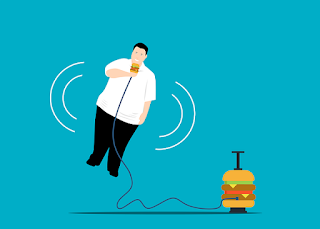How Long Does It Really Take to Break a Habit?
We all have our habits: Procrastinating, knuckle cracking, consuming too much coffee – you know the story. But if you're seeking to stop yours, then how long does it take to break a habit?
First, to determine if a behavior is useful or detrimental, performance psychologist Haley Perlus, PhD, advises asking yourself:
- Does my habit harm my physical or mental health?
- Does my habit squander my energy and time?
- Does my habit prohibit me from attaining my goals?
If you responded yes to any of these questions, your habit isn't beneficial. "Once the behavior is not useful to you — like chewing your nails or texting while driving — you should take it as a cue to try to quit it," Perlus adds.
Here, Perlus describes how long it takes to kick a habit to the curb, with recommendations for how to do it effectively.
Tip
" While some study shows it takes around two months to stop a habit, there's no precise deadline. What's most essential is keeping constant in your attempts to discontinue a habit. "
Read Aslo : The 5 Keys to Breaking Bad Habits
How Many Days Does It Take to Break a Habit?
Turns that there's no magic number for how long it takes to stop a habit. "The length of time it may take might vary from person to person and depends on the sort of habit you're attempting to break," Perlus explains.
That's what researchers in a short July 2009 study in the European Journal of Social Psychology found as well. It took anything from 18 to 254 days to transform a habit for people who were aiming to change a behavior linked to more healthy eating, drinking or activity. Most individuals fell somewhere in the center, needing an average of 66 days to modify their normal behaviors.
Still, this figure isn't fixed in stone, and fresh, bigger research are required to further determine an average timeframe.
Plus, everyone's scenario is unique. So rather than concentrating on time, concentrate on consistency, which seems to be the key to quitting a habit in the long term. Case in point: The same study discovered that individuals who performed an action most often — particularly early in the process — had better results.
4 Tips to Help You Break a Habit
Quitting a habit is tough but not impossible. If you're purposeful, persistent and patient, you can boot a habit that's not in your self-interest. Here are several strategies, courtesy of Perlus:
1. Identify Your Triggers
Spend time observing your behavior and determine what sparks it, Perlus advises. For example, you may tend to bite your nails if you're feeling irritated or bored.
When you better grasp what leads you to depend on a habit, you have a greater opportunity of interrupting and diverging from the pattern, she adds.
2. Change Your Environment
"Your environment may have a tremendous influence on your behaviors," Perlus explains. Your surroundings — including the individuals you spend time with — may either assist or impede your objective of changing a behavioural habit.
Modifying your area helps you to set yourself up for a good conclusion, Perlus argues. "For example, if you procrastinate, you may want to set up a workstation that does not have a TV, gaming console or any other distractions that take away from your attention," she advises.
Similarly, if you're attempting to stop smoking, you may need to isolate yourself from the companions you regularly smoke with to help you stay to your plans.
3. Reward Yourself
"Breaking a habit might be one of the most difficult undertakings to embark on," Perlus adds. So don't forget to recognise how far you've come and enjoy the minor triumphs, no matter how long it takes to break a habit.
This will also help you remain motivated. "If you concentrate on the progress you've made rather than the tiny slip-ups, you can enhance your confidence and strengthen your motivation to keep moving ahead," Perlus adds.
4. Replace Unwanted Habits With New Ones
Breaking a habit that's not beneficial is an impressive achievement. And exchanging it with a better habit is frosting on the cake.
"If you start repeating a new behavior in lieu of an old one, it might make it simpler to replace the undesired habit," Perlus explains. Plus, when the new behavior supports excellent health, it's a win-win.
For example, instead of cracking your knuckles when you're bored (old behavior), you may grab for a fidget spinner or stress ball (new habit) (new habit).
